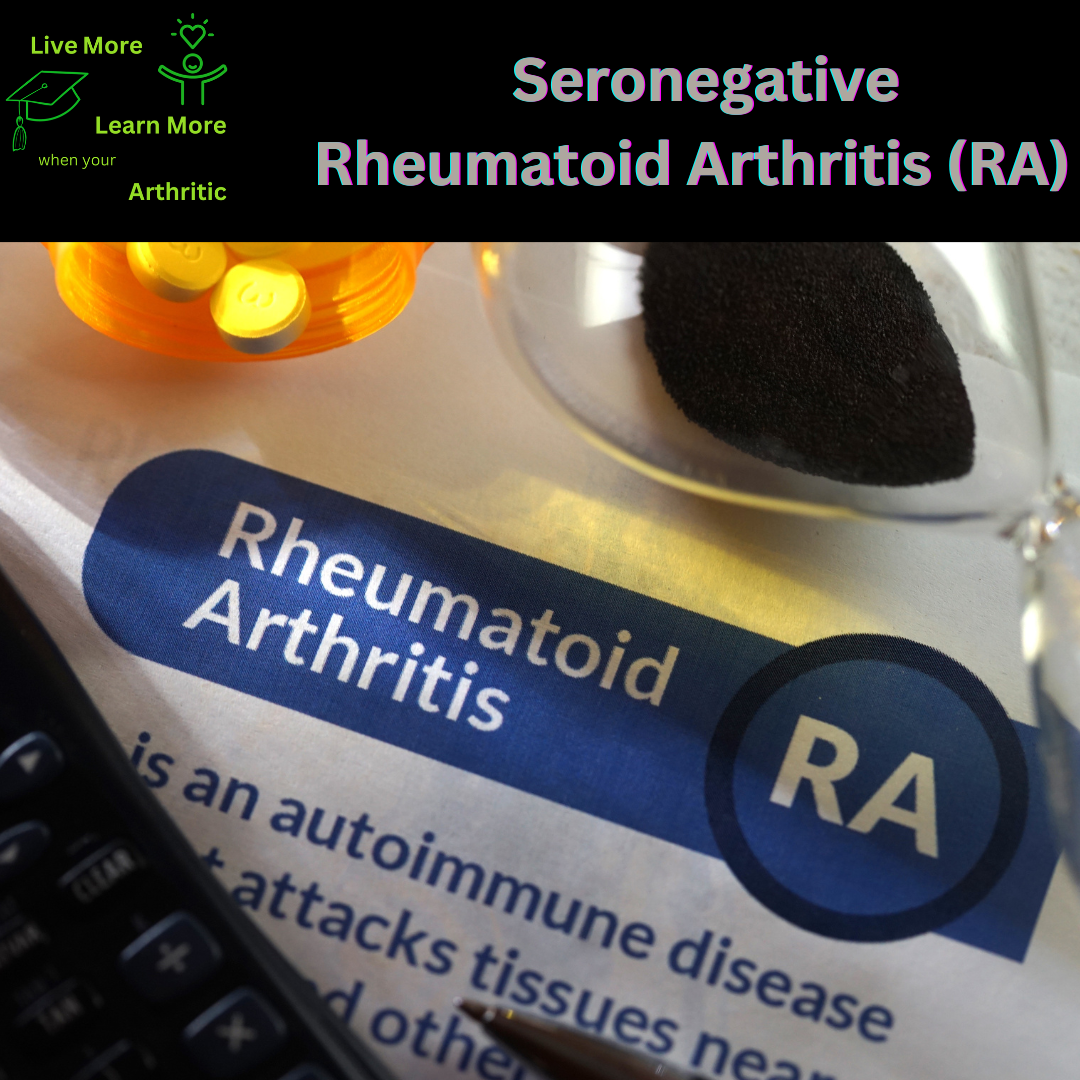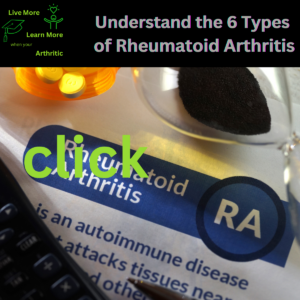
Seronegative Rheumatoid Arthritis (RA): 1 of 6 Subtypes of Rheumatoid Arthritis (RA)
Unveiling Seronegative Rheumatoid Arthritis (RA): A Personal Journey
Seronegative Rheumatoid Arthritis (RA) is a complex autoimmune condition characterized by joint inflammation, pain, and stiffness. Unlike typical RA, seronegative RA lacks certain antibodies typically associated with the disease, posing diagnostic challenges and impacting various parts of the body.
Read each of the 6 Rheumatoid Arthritis Subtypes.
6 Subtypes of Rheumatoid Arthritis
Juvenile Rheumatoid Arthritis (JRA): 2 of 6 Subtypes of Rheumatoid Arthritis (RA)
Juvenile Rheumatoid Vasculitis (JRV): 3 of 6 Subtypes of Rheumatoid Arthritis (RA)
Juvenile Palindromic Rheumatism: 4 of 6 Subtypes of Rheumatoid Arthritis (RA)
Juvenile Undifferentiated Connective Tissue Disease (UCTD): 5 of 6 Subtypes of Rheumatoid Arthritis (RA)
Juvenile Seropositive Rheumatoid Arthritis: 6 of 6 Subtypes of Rheumatoid Arthritis (RA)
And the Rheumatoid Arthritis Severity Scale
Seronegative RA predominantly affects the joints, particularly those in the hands, wrists, feet, ankles, and knees. The hallmark symptoms include joint pain, swelling, warmth, and stiffness, especially in the morning or after periods of rest. Over time, joint damage can lead to deformities and reduced range of motion, affecting daily activities and overall quality of life.
Understanding Remission and Disease Description
Remission in seronegative RA refers to a state where disease activity is significantly reduced, allowing individuals to experience periods of relief from symptoms. Achieving sustained remission often requires a comprehensive treatment approach, including medication, lifestyle modifications, and regular monitoring.
Causes, Triggers, and Autoimmune Nature
The precise cause of seronegative RA remains unclear but likely involves a combination of genetic predisposition and environmental triggers. Autoimmunity plays a central role, with the immune system mistakenly attacking healthy tissues, particularly the synovium (joint lining), leading to inflammation and joint damage.
Risk Factors and Onset Age
Risk factors for seronegative RA include a family history of autoimmune diseases, exposure to certain infections or toxins, and genetic factors such as specific HLA gene variants. While RA can develop at any age, onset typically occurs between 30 to 50 years old, with women being more affected than men.
Complications and Impact on Lifespan
Seronegative RA can lead to complications such as joint deformities, disability, and increased risk of cardiovascular disease and osteoporosis. Chronic inflammation associated with RA can also contribute to fatigue, depression, and reduced life expectancy if not effectively managed.
Inflammation, Tenderness, and Cartilage Damage
Inflammation is a key feature of seronegative RA, contributing to joint swelling, tenderness, and warmth. Prolonged inflammation can lead to cartilage damage, joint erosion, and ultimately, loss of joint function. Early intervention is crucial to minimizing long-term damage.
Comorbidities and Associated Conditions
Seronegative RA is associated with various comorbidities, including psoriasis, inflammatory bowel disease (such as Crohn’s disease or ulcerative colitis), and Sjögren’s syndrome. Managing these interconnected conditions requires a coordinated approach to healthcare and ongoing monitoring.
Maintaining Quality of Life with Proactive Management
Proactive management of seronegative RA involves a multidisciplinary approach. This includes disease-modifying antirheumatic drugs (DMARDs) to suppress inflammation, physical therapy to maintain joint flexibility and strength, lifestyle modifications (such as weight management and smoking cessation), and psychological support to cope with the emotional impact of chronic illness.
 Possible Complications and Interconnected Diseases
Possible Complications and Interconnected Diseases
Complications of seronegative RA can be severe and include joint deformities, chronic pain, disability, and increased susceptibility to infections. Individuals with RA should be vigilant about managing associated conditions like osteoporosis and cardiovascular disease through regular screenings and preventive measures.
In summary, seronegative Rheumatoid Arthritis is a challenging condition that requires comprehensive management to optimize outcomes and maintain quality of life. By addressing the underlying causes, managing symptoms, and addressing associated comorbidities, individuals with seronegative RA can live fulfilling lives and minimize the impact of this chronic autoimmune disease on their overall health and well-being.


